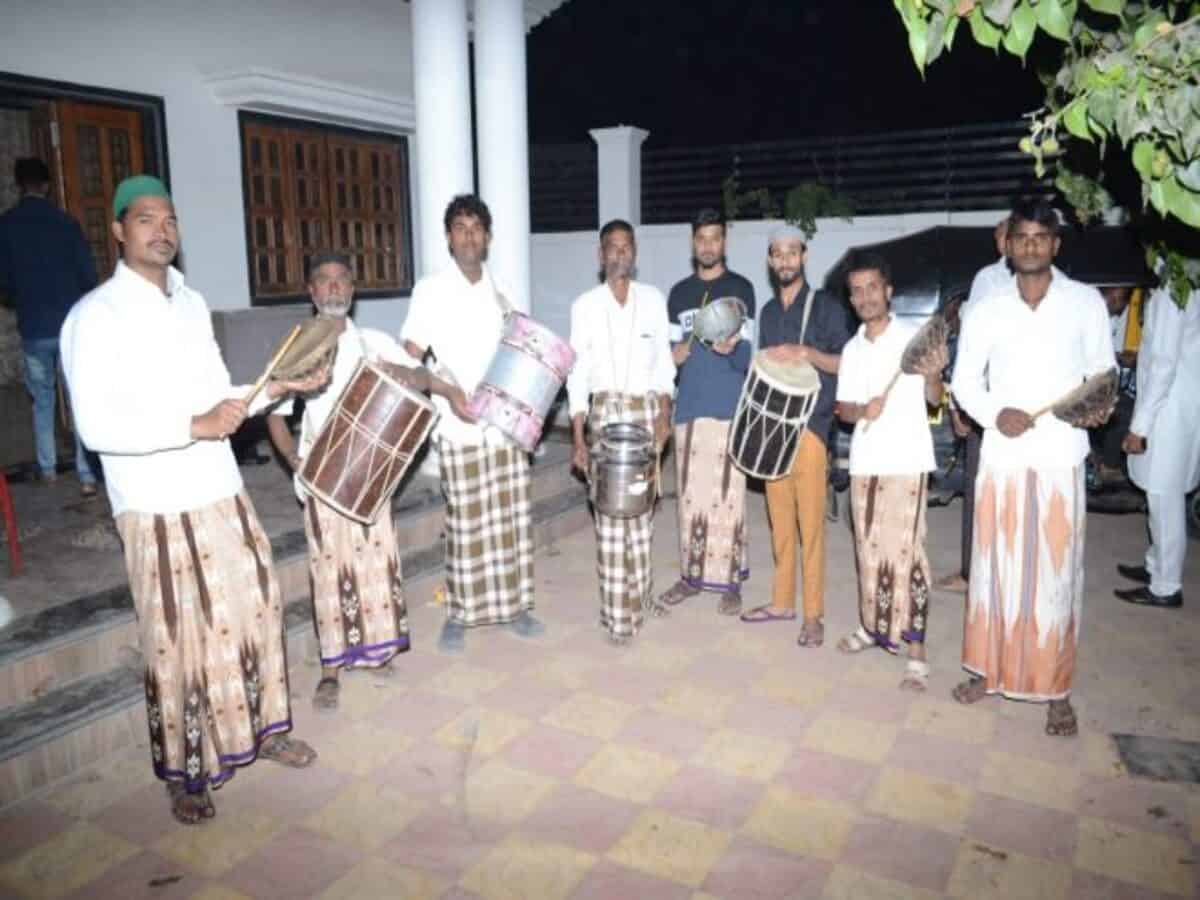
Hyderabad: Although different musical bands from across the country are making their foray into the city, the Hadhrami (Yemeni) marfa or Arabi Marfa fails to lose its demand in city functions.
The band is called Hadhrami marfa because it is a form of music originated from Yemen’s Hadhrami region in the Middle East. Hyderabad has a population of Yemenis who are mostly settled in Barkas and King Kothi. They were brought here to work in the armies during the Nizam era (1724-1948), and they brought along their culture. The Hadhrami marfa played during functions is part of it, and is loved by many.
Over time, Hyderabadi culture essentially adopted the marfa as its own. During the Nizam rule, the band played for celebratory occasions. The tradition was reintroduced after Telangana State was formed and it is played at the Independence Day celebrations at Golconda Fort as well.
If one takes a look at instruments, these mainly originate from Oman and Yemen. The set comprises ‘Kasir Mufaltah’ – (kasir is also called dholak), rahmani, mirwas, marfa or timki, steel pots and wooden strips called thapi.
Saber Bashar, who is into playing the instruments since young age explains the musical instruments are double-skinned and are the ones used in Middle East and African countries.
A pulsating rhythm is generated only when all the instruments are hit by the drummers in coordination. The wooden strips and the steel pots are hit together to add music to produce a distinctive rhythm.
The drummers wear chequered lungis, white shirts and scarves around the neck or heads – a similarity with their ancestral dress. Jaweed Faisal, a second generation marfa master from Mallepally explained, “Traditional dress is the attraction of the folk band. A group comprises 8, 12, 16 and 22 members and they play various popular music pieces.”
The performers are good folk singers too and sing Arabic songs. Arabic compositions Ahlan wasahlanya, Abu bakar-ya abu salahm, usually, and, then, you have the local Dholak ke geet – Sali ke Bagh, Kankariya maar ke jagaya, etc. “People demand and we oblige their request to sing songs,” said Aslam Khan alias Pahelwan, of Misrigunj.
Not only singing, they also perform the folk dance. Mostly, plastic made imitations of weapons are used during the dance to see no one gets injured.
Previously people associated with the Yemani or Chaush community in Barkas and Siddi or Habshi community in AC Guards, played the band. “Slowly the locals learnt it and are now playing,” he added.
Regrettably, the marfa band is losing its essence as some troupes also use the electronic piano now. “It is not a sheri band or regular music band, it is a folk band and you cannot alter it,” points out Salam Abdullah of AC Guards.
Irrespective of region or religion the bands are hired not only for weddings or receptions, also the groups perform during Ganesh Visarjan, Durgashtami also.
